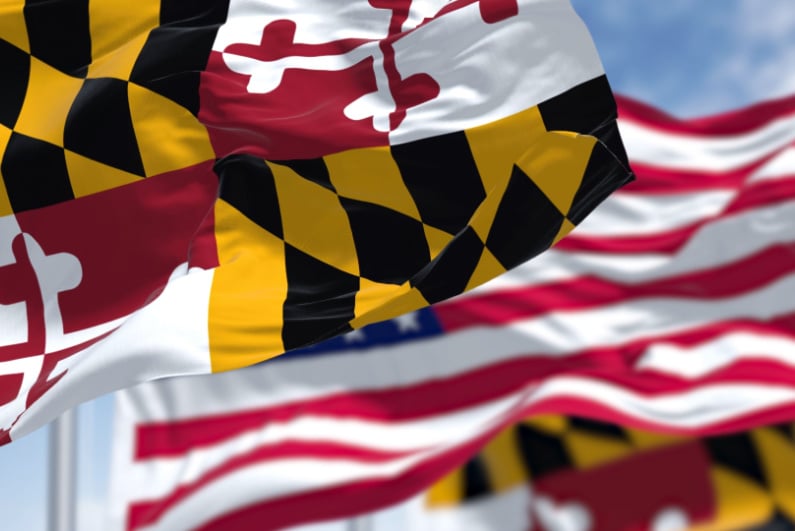
A senator has introduced an online casino bill in Maryland, a state likely to pass the vertical in 2024. [Image: Shutterstock.com]
The Senator introduces the bill
The legal online casino market could be within Maryland’s reach after Senator Ron Watson introduced SB 603 after SB 267 failed to advance in 2023.
Watson introduced the bill Friday along with a piece of supporting legislation that would allow a referendum to be held in Maryland’s general election in November.
Allowing each casino to partner with two operators
Updated language in SB 603 would allow six state casinos and video lottery terminal operators to offer online casino games. The bill would allow each casino to partner with two operators, such as FanDuel or BetMGM, that already offer retail and mobile sports betting in Maryland.
Under Watson’s bill, operators would need to pay $1 million for a five-year license fee and pay a tax of 47% of gross revenue.
Strengthening the state
Operator taxes would significantly boost state coffers, with 1% going to the Maryland Lottery and Gaming Control Agency (MLGCA) and another 1% to the state’s problem gambling fund. The remaining 45% will go toward education funding through Blueprint for Maryland’s Future Fund.
If the Maryland legislature passes SB 603, lawmakers would also have to pass SB 565. This companion legislation would put the online casino question to voters, putting them on the ballot:
“Do you support expanding commercial gaming in Maryland to allow online gaming for the primary purpose of raising revenue for education?”
The MLGA commissioned a study on the economic impact of online casinos
One issue that Watson’s bill faces, and a hot topic among lawmakers, is fears of cannibalism. Fearing the negative impact on the net income of casinos and VLT operators in Maryland, the MLGA commissioned a study on the economic impact of online casinos.
However, the innovation group recently presented the results of its study to the House Ways and Means Committee, stating that “the potential impact of online gaming was minimal.”
SB 603’s language also covers live dealer studios, which will create more job opportunities for Marylanders.
Potential candidates
Gaming industry insiders believe that Maryland, New York, Illinois, and Louisiana are the states most likely to approve online casino gaming in 2024.
Currently, only Connecticut, Delaware, Michigan, New Jersey, Pennsylvania, and West Virginia have legalized online casino gaming.
According to the Maryland General Assembly website. The Senate will hear Watson’s bill on February 28.



